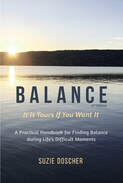|
Learning how to respond to a situation rather than just reacting to it brings huge rewards. Needless to say, it is one of those behaviour changes that is easier said than done. However it can be achieved. Responding rather than reacting means you will have taken time to consider the situation and which response and consequent outcome best suits you. The difference between reacting and responding:
To react means you are not able to influence your emotions and you act emotionally rather than from a place of clarity. What you can gain by stopping knee-jerk reactions is a sense of strength, achievement, power to influence, calmness, plus an increase in your self-esteem. The rewards will be felt not only in your private life, but also at work. As with all behavioral changes time and patience will be necessary, and you should allow yourself to make mistakes during this 'reprogramming'. Different kinds of reactions:
Everybody has certain relationships or situations that bring out the worst reactions or overreactions. Feeling busy and stressed can magnify a reaction. In contrast, when you are calmer, you are better able to take time to assess the options and possible responses to achieve your desired result. Eight tips to help you learn how to stop reacting and start responding:
In summary, by learning how to respond rather than react you are giving yourself:
An Excerpt from "Act Not React - Change Your Reactive Behavior" ‘Balance – A Practical Handbook and Workbook for Life’s Difficult Moments by Suzie Doscher “Life is 10% what happens to you and 90% how you react to it” - Charles R. Swindoll
|
Suzie Doscher is a Professional Executive Coach focusing on Personal Development. Located in Zurich, Switzerland. Her approach to personal development is practical and successful.
Suzie is happiest when helping people. Her vision is everyone should have access to techniques for personal growth and development. This was the motivation behind her book. Author |



 RSS Feed
RSS Feed

